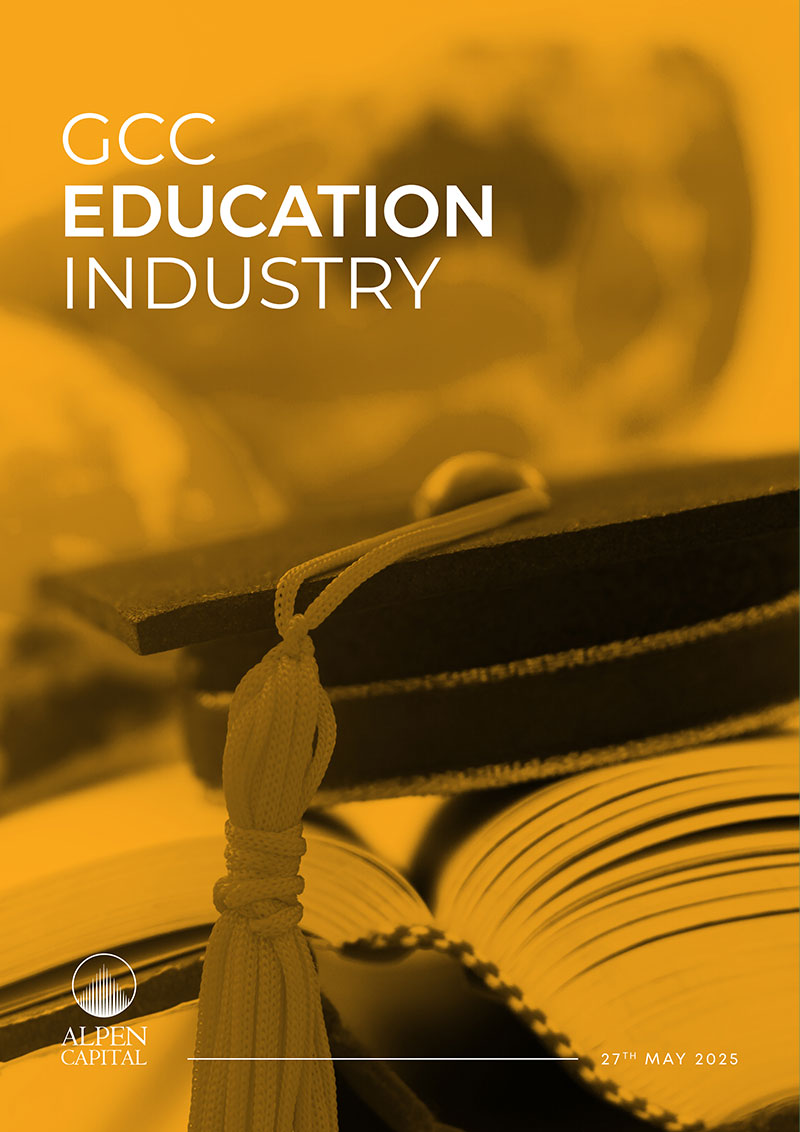The EdTech industry has been transforming the education sector of the Gulf Cooperation Council (GCC), especially post the pandemic, by harnessing digital technologies and leveraging the growing penetration of digital devices among the general population. The rising adoption of EdTech platforms and emerging technologies has been reshaping traditional education models by enabling more dynamic, personalised and inclusive learning experiences. Alpen Capital’s report on the GCC’s education sector covers the expanse of these trends, highlighting the integration of artificial intelligence (AI) and EdTech as key drivers shaping the future of GCC classrooms.
Increasing prominence of EdTech platforms
Investments in digital transformation, education infrastructure, and ICT integration have led to the growth of the EdTech industry within the GCC. Consequently, the number of EdTech platforms in the region have increased significantly to meet varied requirements of the industry stakeholders. “The increasing integration of education technology (EdTech) is revolutionising learning experiences, improving accessibility, and enhancing operational efficiency” stated Alan Williamson, CEO of Taaleem, UAE. Today, there are platforms that aid professional development, parent-teacher communication, independent learning and administrative efficiency. For instance, the Aanaab platform facilitates the professional development of teachers by acquiring Cambridge-level certifications through distance learning. Al Gooru, a Saudi-based tutoring platform, connects students with their desired private teachers to achieve their respective learning goals. SchoolVoice, is another platform that enhances communication between schools, teachers, parents, and students. Established EdTech platforms such as the Noon Academy, Almentor, Alef Education, and Baims are also investing in enhancing their services to make it more interactive and engaging for the students.
Embracing emerging technologies in classrooms
Emerging technologies and AI-powered tools are playing increasingly important roles within educational institutes in the GCC, redefining classrooms through innovation to provide students with personalised learning opportunities. AI-driven tools are tailoring lessons to individual learning capabilities, fostering a more effective and inclusive educational environment; and Extended Reality (XR) is enabling students to explore digital labs, step into historical settings, and simulate complex medical procedures, making classroom learning more dynamic.
To align with these trends, the Kuwait’s Ministry of Education (MoE) recently approved an initiative proposed by the University of California, Berkeley to integrate AI into its education and training systems, which includes the establishment of AI laboratories in secondary schools across the country. The project aims to bring hands-on AI experience to students by providing them with the skills and knowledge necessary to succeed in a rapidly changing world. Similarly, the UAE MoE has launched AI Tutor, a platform specifically designed for the national curriculum that features an intuitive interface adapting to each student’s learning pace and style, while also providing progress tracking through a personal dashboard.
Government Initiatives driving EdTech and AI integration
Recognising the importance of these platforms in shaping the education landscape, the regional governments are also investing in these technologies. National development plans such as Saudi Vision 2030 and UAE Vision 2031 outline bold, future-focused agendas for educational reform, with education and technology being prioritised as foundational pillars of economic transformation. Poonam Bhojani, CEO of Innoventures Education notes that, “The key enablers of growth include continued government investment, public-private partnerships, increased adoption of EdTech, and curriculum modernisation aligned with future skills”, emphasizing the importance of these technologies in supporting the sector’s development.
In response to the widespread implementation of AI-driven EdTech in classrooms, governments are making an active effort to ensure that schools in the GCC embrace the change. For example, the UAE MoE recently announced the introduction of AI as a subject for K-12 in all public schools, starting from the next academic year. The curriculum will cover seven areas including foundational concepts, data and algorithms, software use, ethical awareness, real-world applications, innovation and project design, and policies and community engagement. The Abu Dhabi’s Department of Education and Knowledge (ADEK) has also launched the “AI for Teachers” initiative to equip educators with essential AI skills and prepare the emirate’s education sector for a technology-driven future.
At the same time, the MoE of Saudi Arabia in partnership with the Saudi Data and AI Authority (SDAIA) and Mawhiba, launched the “Artificial Intelligence Hour” initiative. This initiative aims at not only raising awareness regarding AI tools but also training middle and high school students in the field of AI. Oman’s MoE has also implemented similar measures of integrating artificial intelligence in school education to enhance learning experiences and align with modern digital specifications.
Emerging technologies unlocking new investment avenues
GCC countries are making substantial investments in education to develop an ecosystem aligned with global standards. Consequently, governments are actively partnering with global tech leaders to integrate cutting-edge solutions for classrooms. The focus on building knowledge-based economies makes the region an attractive destination for private players, technology providers, and education innovators seeking to tap into a growing market. The continued expansion of the industry along with increasing adoption of EdTech solutions, including smart classrooms, online learning platforms and digital assessment tools presents compelling opportunities for investors and operators.
 5 min
5 min





